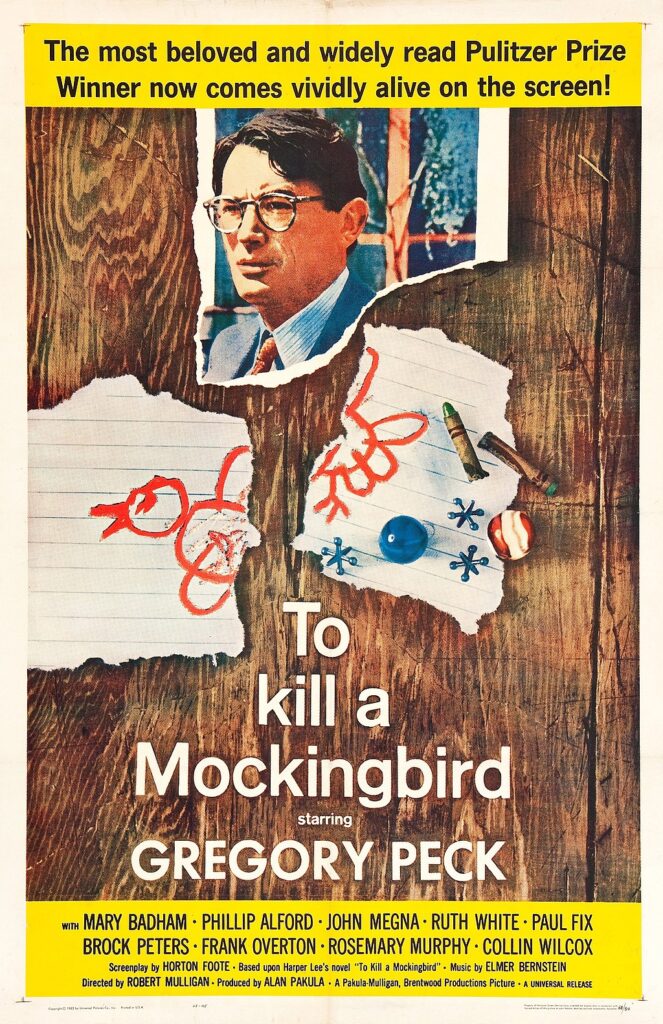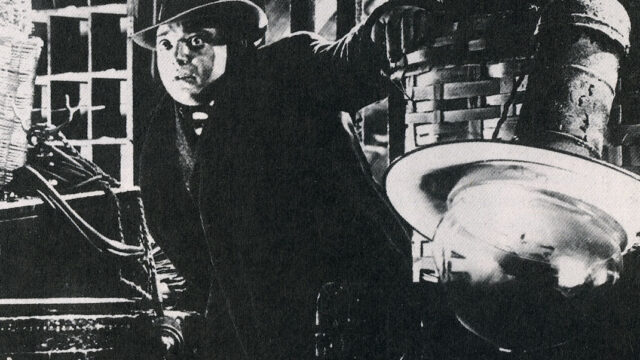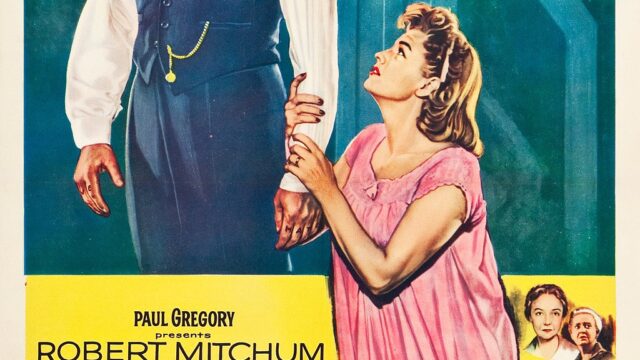Films are, of course, both a verbal and a visual medium – something we listen to and very much look at. As such, a few lines of dialogue or a short sequence of shots can sum up and capture the whole essence of the film in just a few seconds or moments.These instances can be called dialogue movie moments or visual movie moments.
“Mockingbird” is based on a 1960 book by Harper Lee. Set in the 1930`s, it takes place in Alabama, the deep south of the USA. At heart, Mockingbird is a simple courtroom drama showing the trial of an innocent man, as seen through the eyes of a young girl, Scout.Yet by means of a fine script, an excellent ensemble of actors and brilliant camera work, the movie becomes so much more.
The film exposes the hatred and evil nourishing racial discrimination, such as to make us, the audience, ashamed that humans can behave so callously, as we see people blatantly pervert the course of justice and condemn a man to death – all based on the totally insignificant fact of a difference in skin color.
Gregory Peck plays the part of a widower, with 2 children, a son and a daughter, the young girl mentioned above. He is a white lawyer defending an innocent black man against the charge that he raped a white woman. This is at a time when black Americans had few rights and faced daily hostility, discrimination and segregation.Indeed by representing his client, it could be said that the lawyer was putting his career on the line, and even the safety of his family and himself – as is seen to happen near the end of the film.
Late in the movie, the Visual Movie Moment takes place over about 1 minute 40 seconds of action, with a Dialogue Movie Moment of only 8 words in the middle of this.
At the end of the trial, the black man is found guilty by the all-white jury, despite all the efforts and compelling evidence presented by the lawyer. The courtroom clears and the lawyer gathers up his papers as he too prepares to leave. The whole black community, however, stay behind in their segregated area, along with the lawyer’s 2 children who have snuck in. As the lawyer starts to leave, in a simple show of respect and admiration, the whole black community rise to their feet en masse – and the black preacher gently chides Scout, who is sitting on the floor, “Miss Jean Louise, stand up ! Your father’s passing.”
It is an iconic scene and one of the most powerful ever recorded. So much is expressed in the brief action and dialogue – respect and admiration as said, unity between black and white , and perhaps even a refusal to be defeated and a resolute belief that freedom will come one day.
While advances have been made regarding the rights of minority groups in the US and indeed around the world, it is to our shame that both the novel and the movie are as relevant today as they were over 60 years ago.
Peter Anyon










